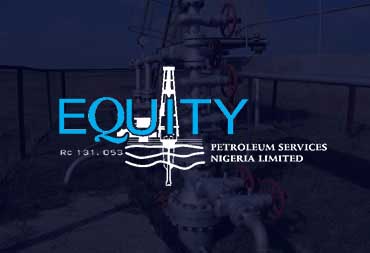Nigeria’s hopes of accelerating growth in its upstream sector appear set for further delay due to legislative time running out to debate its long-awaited Petroleum Industry Bill (PIB).
The bill is the centrepiece of Abuja’s efforts to reform its oil and gas industry and provide clarity on its fiscal regime. However, it may not become law until late December, at the very earliest, as Senate plenary sessions were suspended straight after the bill passed its second reading on 20 October.
Senate president Ahmed Lawan announced that the upper chamber would adjourn until 24 November so ministers could concentrate on the 2021 budget. However, he acknowledged the bill needed to be before the joint committee before the suspension, otherwise “that would be late… Everybody is waiting for the PIB to be attended to.”
Ahead of the second reading, Lawan acknowledged it is a “very sensitive” document. “We should …. refer the document to our Joint Committees on Petroleum so while we are working on the budget, they can keep work on the PIB warm. We are not going to rush on it since we have the budget before us.”
Ekpen Omonbude, group managing director of Lagos-based service provider Eraskorp, tells Petroleum Economist that the bill proposes “a framework that expands the revenue base of the government while ensuring a fair return for investors, as well as promotion of equity and transparency in the fiscal regime”.
The PIB would replace the existing petroleum profit tax (PTT), which is applied in lieu of corporate income tax, with the Nigerian hydrocarbon tax (NHT). NHT proposes a 50pc profit tax for petroleum operations onshore and in shallow-water fields, but reduced to 25pc for operations in deepwater, bituminous and frontier acreages.
By comparison, the existing PTT levies 50pc for operations under PSCs; for non-PSC operations, including joint ventures, the levy is 65.75pc in the first five years and 85pc thereafter.
If passed, oil companies operating onshore or in shallow waters would be required to set up a trust fund of c.2.5pc of operating costs. At least 75pc would be allocated to community projects, with the remainder saved.
NNPC privatisation
PIB would allow Abuja to sell shares in state-owned Nigerian National Petroleum Corporation (NNPC), although no date or volume of shares has been proposed. The government hopes private involvement would help tackle corruption and opacity.
NNPC—which generates over 50pc of the government’s revenue—has been struggling for years. However, its net loss shrunk to just to NGN1.7bn ($4.4mn) last year, from a huge NGN803bn in 2018, due to cost cutting and “greater efficiency”, according to October accounts, published for just the second time in 43 years. Its revenue fell marginally from NGN4.74tn to NGN4.63tn.
The PIB seeks to make NNPC “a commercially oriented and profit driven national petroleum company”. NNPC would be replaced by a limited-liability company, of the same name, operating on a commercial basis with an annual independent audit. The finance ministry would hold the government’s shareholding.
The bill states that the sale or transfer of shares is required to be at a “fair market value and subject to an open, transparent and competitive bidding process”. A provision remains for wholesale privatisation, but that would have to be approved by the government.
Delays to PIB cost Nigeria $15bn in revenue annually, Ibe Kachikwu, former NNPC group managing director estimated back in 2015. “The delays mean that revenues that would accrue to the country as a result of the bill will take additional time to come due,” Joachim MacEbong, senior analyst at SBM Intelligence tells Petroleum Economist, while noting that “the government is seriously struggling for revenue”.
“The oil market is more competitive now than it has ever been… and future trends for the oil industry do not look too good because a number of developed countries have set ambitious targets for reduced greenhouse emissions,” MacEbong says.
“The PIB represents a final opportunity for Nigeria to make additional value from the sector. However, this latest delay will hamper that. The reason given by lawmakers is apparently to focus on the 2021 budget. Once that is concluded, though, it is important that the PIB is the next priority.”
Source: Petroleum Economist

